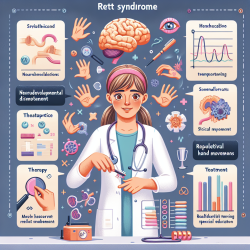In the ever-evolving field of speech-language pathology, it is crucial to rely on data-driven decisions to ensure the best outcomes for children. Recent research titled Processing-Dependent Measures Sensitive to Language Performance Differences in Arabic-Speaking English Language Learners Compared to Children with Developmental Language Disorder provides significant insights that can enhance our assessment practices, particularly for Arabic-speaking English Language Learners (ELLs).
The study, conducted by Areej M. A. Balilah and Lisa M. D. Archibald, examined the utility of processing-dependent measures in distinguishing between typically developing Arabic-speaking ELLs and those with developmental language disorder (DLD). The findings indicate that such measures may be valid assessment tools that minimize the role of linguistic knowledge and experiences.
Key Findings from the Study
- No significant differences were found between the ELL and typically developing groups on most short-term and working memory measures.
- The ELL group performed comparably to the DLD group on the Arabic nonword repetition task, highlighting the influence of linguistic experience.
- The ELL group scored significantly higher than both the typically developing and DLD groups on the digit recall subtest, suggesting that some processing-dependent measures are less affected by linguistic knowledge.
Implications for Practitioners
The findings suggest that processing-dependent measures, particularly those involving familiar lexical stimuli, can be effective in distinguishing between language difference and language impairment. This is crucial for accurately identifying children with DLD in culturally and linguistically diverse populations.
Practitioners should consider incorporating the following processing-dependent measures into their assessment protocols:
- Digit Recall: This task involves recalling numbers and has shown to be less influenced by linguistic knowledge.
- Word Recall: Similar to digit recall, this task involves recalling familiar words and can help differentiate between ELLs and children with DLD.
- Backwards Digit Recall: This task adds a layer of complexity by requiring the recall of numbers in reverse order, tapping into working memory.
Recommendations for Further Research
While the study provides promising results, further research is needed to validate the use of these measures across different languages and cultural contexts. Future studies should also explore the potential of combining processing-dependent measures with traditional language assessments to enhance diagnostic accuracy.
To read the original research paper, please follow this link: Processing-Dependent Measures Sensitive to Language Performance Differences in Arabic-Speaking English Language Learners Compared to Children with Developmental Language Disorder.










